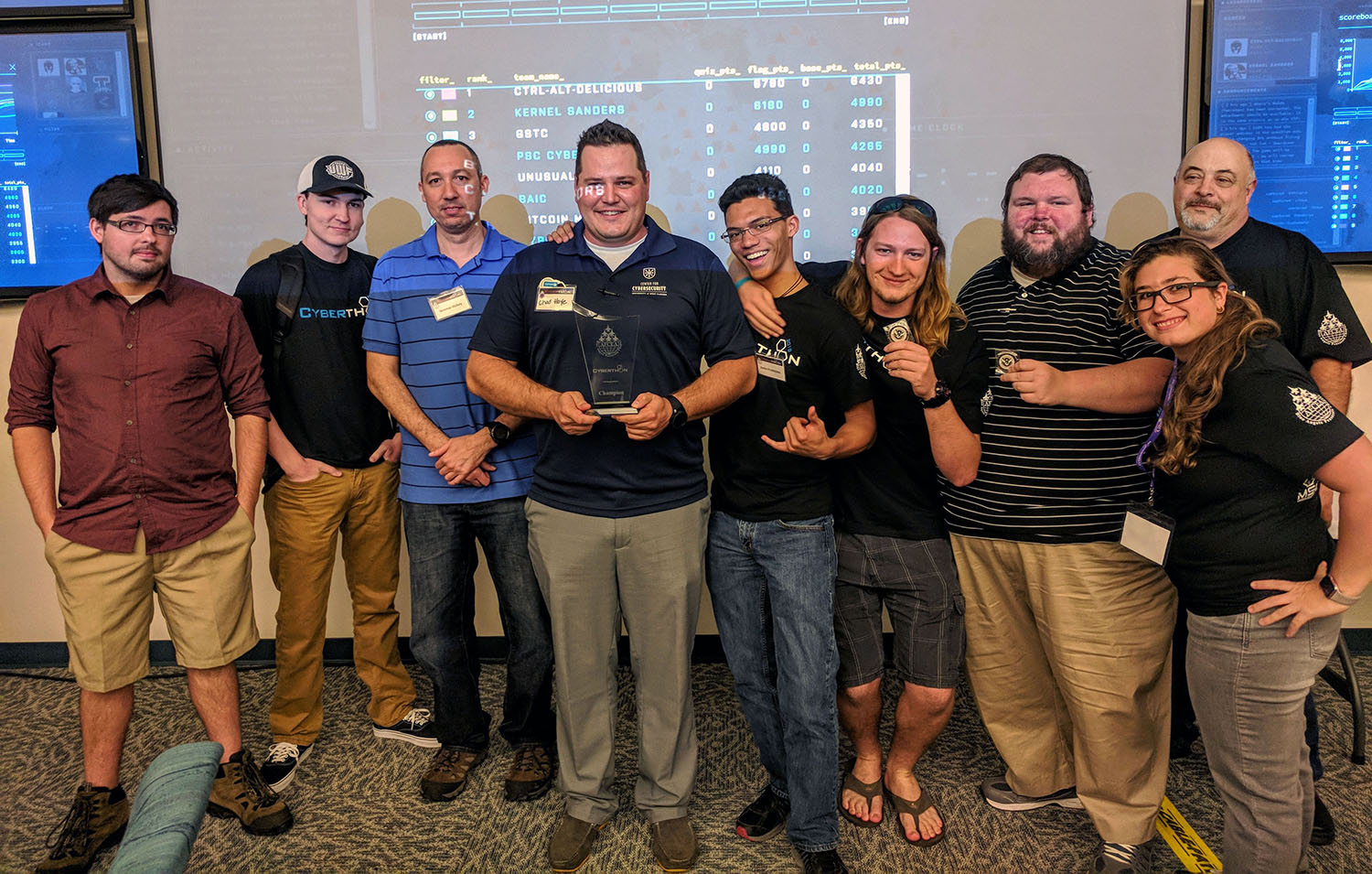UWF Cyber Club teams place first and second at CyberThon
Two University of West Florida Cyber Club teams finished first and second in the 2018 CyberThon Capture the Flag Cybersecurity Challenge on March 11 at the Gulf Power Company Douglas L. McCrary Training Center.

CyberThon is a community event sponsored by the Armed Forces Communications and Electronics Association designed to provide hands-on experience in cyber defense and engagement procedures for high school and college students. The theme for this year’s event was Industrial Control Systems security.
Twelve teams competed in the Capture the Flag Competition. UWF, George Stone Technical Center and Pensacola State College teams competed in the college division and the remaining eight teams participated in the high school division. Teams scored points in the competition by answering questions that covered topics including cryptology, stenography, digital forensics and penetration testing.
UWF students Tyler Bailey, Justin Fruitticher, Jeremie Hickey, Chad Hoye, Sam Janicki, Cody Mahaffey, Zachary Mingus, Irene Nunziata and Dean Rosier scored 6,430 points to beat their 11 competitors and win the competition. The students competed as Team CTRL-ALT-DELICIOUS.
The eight remaining UWF students competed as Team Kernel Sanders. Isaac Beagle, David Benenati, Caroline Krouse, Michael Mitchell, Megan Morton, Lance Stammer, Thomas Thibaut and Jacob Tutt finished in second place with 4,990 points.
Anthony Pinto, lecturer in the UWF Department of Computer Science and faculty fellow in the Center for Cybersecurity, mentored both teams.
“I’m proud of all of our UWF Cyber Club students,” Pinto said. “They devoted a tremendous amount of their time to prepare for the event, and they have bright futures as leaders in the cybersecurity profession.”
This marked the second consecutive year that a UWF team won the CyberThon competition. Mingus credited their success in the CyberThon competition to their diverse skill-set and teamwork.
“It definitely helps knowing who is better at what type of question,” Mingus said. “Part of that communication is saying, ‘Hey, I’m going to let you work on this and I’m going to work on something else,’ so people aren’t relying on others to answer questions and then the question doesn’t get answered. Knowing our strengths beforehand was a great benefit.”
Guest speaker Daniel Stein, Branch Chief, Cybersecurity Education and Awareness, Department of Homeland Security, closed CyberThon by speaking to nearly 150 students, mentors, parents, volunteers and cybersecurity professionals. Stein focused his speech on the Department of Homeland Security, cybersecurity curriculum, the importance of earning a cybersecurity degree and the multitude of job opportunities in the growing profession.
Stein noted that UWF is designated by the National Security Agency and Department of Homeland Security as a National Center of Academic Excellence.
“These designated National Centers of Academic Excellence represent some of the top schools in cybersecurity,” Stein said. “They have aligned their curriculum to Knowledge Units that the National Security Agency developed in coordination with academia around the country to ensure that their curriculum is on par with what is needed in cybersecurity.”
For more information about the UWF Center for Cybersecurity, visit uwf.edu/cybersecurity.


